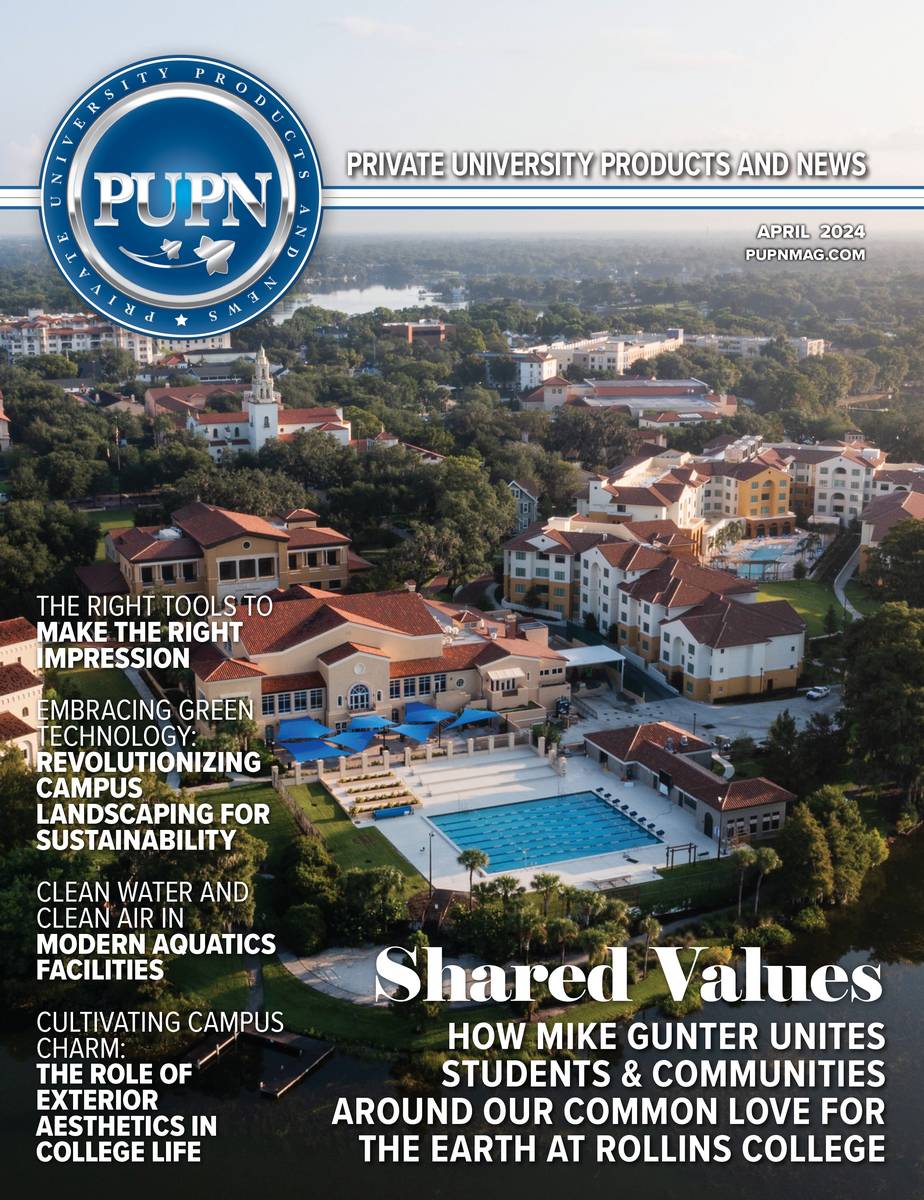These findings come from the U.S. Census Bureau’s “Educational Attainment in the United States,” a table package that uses data from the Current Population Survey Annual Social and Economic Supplement.
Similarly, in 2019, the National Center for Education Statistics reported that close to 35% of college and university students were enrolled in some form of distance education. Enrollment among graduate students was even higher at 39.8%. Put simply, we are witnessing a dramatic rise in educational levels alongside a rise in distance learning.
Making Sense of the Two Trends
To be clear, I am not suggesting that one trend solely explains the other. In the case of students seeking more advanced degrees, one explanation is determined by the changing demands of the workforce, which has become increasingly competitive as well as specialized. In previous generations, perhaps a high school degree was sufficient to provide a middle-class income. Now it’s difficult to argue that even a bachelor’s degree offers any assurances for job security and a livable wage.
Another explanation in the rise of advanced degrees is the potential for higher earning power. According to the Bureau of Labor Statistics, examples of industries that offer higher salaries for those with an advanced degree include Information Security Analysts ($85,000 versus $100,00), Medical and Health Services Managers ($70,000 versus $90,000), and Financial Managers ($90,000 versus $170,000).
Of course, the notion that an advanced degree equates to higher earning potential is hardly an exact science.
Let’s imagine a posting for a tenure track position in the English department at an R1 institution, one that generates interest from 150 qualified applicants. Only one individual is offered the job, and yes, as an assistant professor with a PhD, he or she is likely to earn more than, say, a 10th grade English teacher with an MA—but what about the other 149 applicants, all of whom also have a doctorate? Some will land a tenure track position elsewhere; others will compete for a postdoc or perhaps find employment as a lecturer; the majority, however, will not be so lucky. New graduates far outnumber the availability of well compensated positions within the academy, and this helps to explain how we are now seeing PhDs fall into low-paying adjunct positions.
My larger point, however, is that while there are many possible explanations for the rise in educational levels, we mustn’t ignore the crucial role that distance education has surely played, as well. Indeed, students are attracted to the flexibility offered by distance education, and it’s especially appealing to those unable to enroll full-time, who are working in addition to taking courses, or who live at considerable distances from campus.
Distance education has opened the door for new students to receive college-level instruction, and also for students to seek advanced degrees at a pace most suitable to individual timelines.
Distance Education and “Legitimacy”
As inspiring as it is that more students than ever are accessing higher education and the specialized training offered therein, distance education has yet to win over the majority of college and university professors.
A recent survey administered by U.S. News & World Report contends that only 30.2 percent “said their faculty members’ accept the value and legitimacy of online education.”
The findings of the survey should be cause for concern, and for several reasons. Most pressing is the suggestion that a growing number of students want precisely what their teachers do not want—the freedom and flexibility of online education rather than traditional, face-to-face pedagogical models.
Exactly how and to what extent this disparity may impact students enrolled in distance education is difficult to measure. If an educator does not believe in the “value and legitimacy of online education,” is it unreasonable to question that individual’s dedication to producing an engaging and rewarding online course?
Then again, the vast majority of our educators are highly committed, adaptable professionals who care about their students’ development; and while they may indeed prefer teaching face-to-face, this hardly means the efficacy of their courses, whether in design or implementation, is diminished in any way. Moreover, there are plenty of educators who excel in online teaching, who have been trained specifically for it, and whose pedagogy has been enriched and broadened as a result.
Educators’ Concerns about Distance Learning
Due to the COVID-19 pandemic, the enrollment numbers of distance learners are understandably accelerating at a rapid pace in the short-term, and perhaps for much longer. Time will tell.
But as of July 2020, the likelihood of face-to-face classes are diminishing each day, and evidence points towards another semester comprised mostly (if not entirely) of distance learning or at least hybrid classes.
While the safety of the campus community is rightly priority number one, many educators are concerned by the obstacles that may emerge (or have already) during distance learning. For one, communication is hard. It can be a challenge during in-person interactions, but such challenges are compounded when communicating lessons, instructions, or feedback by print, audio, or even video. The speaker’s tone, his or her emphasis on certain details—both are easily lost in translation, and without either the speaker or the audience knowing a miscommunication has occurred.
Providing feedback on a student’s writing on the computer is a completely different animal than conferencing with a student about his or her work. Students need to be able to trust the guidance of their professors, and trust is more easily gained when face-to-face interactions occur.
Similarly, facilitating group conversations face-to-face, when they are successful, unfold organically. Students energize one another, feed of each other’s good ideas. To facilitate group conversations online is much more challenging, particularly because not everyone may even have access to the necessary equipment. For the professor, it is one thing to control the classroom environment so that everyone is attentive; it is something else entirely when students are logging in from their homes or elsewhere.
For students who are less inclined to prefer distance learning, their concerns are not unlike that of their professors: online directions can be difficult to follow; technology issues are disruptive; with the added flexibility and freedom of distance learning, students may struggle to stay motivated and create structure away from the classroom; indeed, they may also miss collaboration and peer-to-peer interaction; they may even have difficulty reaching the professor.
Interrogating the Value of the Online PhD
With more students than ever completing advanced degrees, and with the rising ubiquity of distance learning, it is no surprise that the higher education market also includes students who earn their doctorates online, who may never even step foot on campus.
The subject of the online PhD and its complicated (if not problematic) place in higher education is one that requires continued investigation, but I must admit how startled I was by the information I encountered over the span of just a few days.
A cursory Google search of “top online doctoral degree programs” generated several top ten lists, none of which were alike. The methodology for compiling the lists helps to explain the differences to some degree, although it quickly became evident that the author(s) of each list were writing with specific rhetorical goals in mind.
On one particular website, I was struck by two criteria included in its methodology for selecting “top online doctoral degree programs.” First, the institution chosen “must have awarded at least one doctoral degree in 2018-2019.” As such, any institution that offers doctoral degrees would be eligible for the list. Also note here the glaring absence of language that identifies online doctoral programs. Second, the institution must offer career counseling, payment plans, and placement services—aren’t each of these fairly standard qualifications of any and all higher education institutions?
Stranger still, the top ten list included four institutions located in a single southwestern state, and one of these has a reported 87% acceptance rate. Number Two on the list is a private university that requires a course in Creationist Biology and is known more for its controversial response to the coronavirus outbreak than its rigorous doctoral programs. The top ten list likewise included a disproportionate number of evangelical institutions.
Another website offering a top ten list suggests that an online doctoral program is typically completed in just four years. Included is a timeline that details the primary objectives of each year. Unless indicated otherwise, I am paraphrasing below:
Year One: Students focus on completed coursework related to a preliminary exam, and they may attempt a preliminary exam.
Year Two: “Students should expect to complete all preliminary exams during this year . . . Students continue to attend graduate student and research seminars.”
Year Three: Develop a prospectus for a dissertation. “The third year of doctoral degree requirements may also include a comprehensive oral exam.”
Year Four: Students complete and defend dissertation.
In the United States, to complete a doctorate in four years is exceptionally rare, and it is a disservice to any potential student to be told otherwise. In fact, according to the Survey of Earned Doctorates, the median amount of time it took doctoral students to complete the degree was 5.8 years. However, numerous types of programs take even longer, those such as humanities and arts doctorates, where the median time to completion is 7.1 years.
Also strange is the assertion that in Year Two, a student completes preliminary exams prior to completing classes. The classes, of course, are intended to prepare the student for exams. Further, written and oral exams are generally taken within the same two-week period, so I cannot understand why an oral exam is included in Year Three.
Finally, the notion that a doctoral student can complete and defend a dissertation in a single calendar year is arguably reckless. I have no doubt someone has managed to pull off such a feat, although from personal experience, I cannot imagine how—or even why one would try.
A Few Key Takeaways
No student is exactly alike. The same can be said of educators. Some will thrive via distance learning, and some will not.
What concerns me is not that distance learning is growing, for it offers valuable and necessary services to many students. And at face value, I’m delighted that more students than ever are able to work towards an advanced degree.
My enthusiasm begins to falter, however, when considering that in certain fields, graduates with advanced degrees vastly outnumber jobs that are both available and desirable.
And finally, I am deeply concerned by the (mis)information I have encountered in the process of researching online doctoral programs.
Prospective doctoral students generally have the best of intentions. They are curious, ambitious, and it is the desire to excel and to contribute to a field of study that keeps them going, even amidst the hurdles of any rigorous doctoral program: the coursework; the written and oral exams; the incredible body of research that goes into developing a prospectus; and of course, the writing of a book-length dissertation. Many doctoral students manage all of this while also teaching, attending academic conferences, and producing publication-worthy scholarship.
Perhaps it is the idealism of certain prospective doctoral students that makes them vulnerable, and such persons deserve the best possible advice, and of course also the best possible education, whether it is one achieved on campus or online.
Let Me Offer One Final Case Study
At one particular private, for-profit, online-only university, it aims to debunk various “myths” regarding the legitimacy of acquiring an online PhD. In the process of doing so, the ease with which a prospective student may gain admittance and also work at a comfortable pace are emphasized—no standardized tests required; studying as one’s schedule allows; learning from faculty, “most of whom have completed their program of study at a regionally accredited institution of higher education”; and accessing such an education at fees “that are as low as possible.”
The same institution suggests that because it has accreditation by the Department of Education and the Council for Higher Education Accreditation, it is a trustworthy source for information regarding not only the quality of education provided, but also the many benefits that one may enjoy upon completion of the degree.
One such example: “Recent studies show that schools make no delineation between on-campus and online graduates, proving that ‘a degree is a degree’ through whatever means it is earned, from the institutions’ perspective and thus to employers.”
This statement is a blatant case of misdirection. It is designed to mislead.
We instill in our undergraduates the virtue of supporting any claim with credible, researchable evidence—and yet here in the reference to “recent studies,” no sources are provided. Worse still, the assertion that employers “make no delineation” regarding how a PhD is earned is patently untrue. Look no further than the fierce competitiveness of the academic job market.










